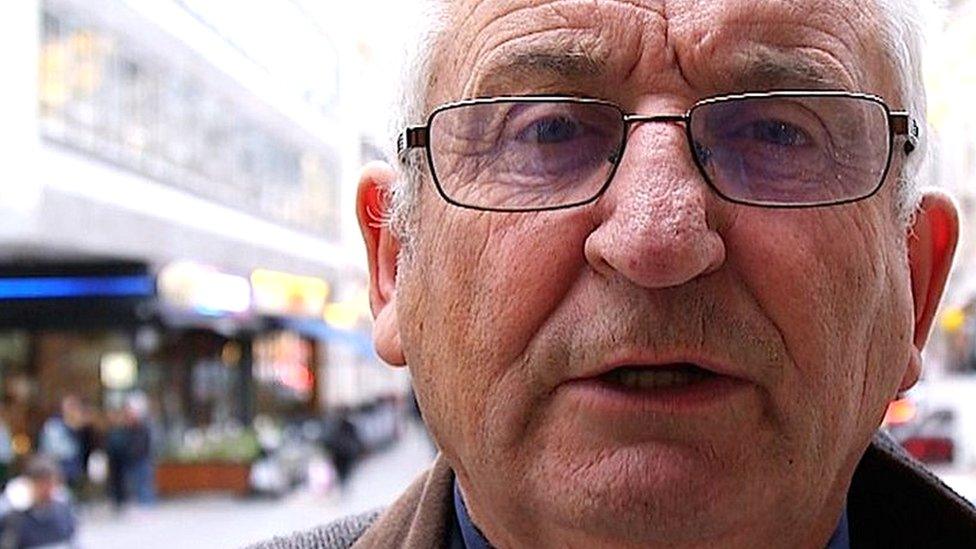Lord Bird wants prevention unit for poverty
- Published
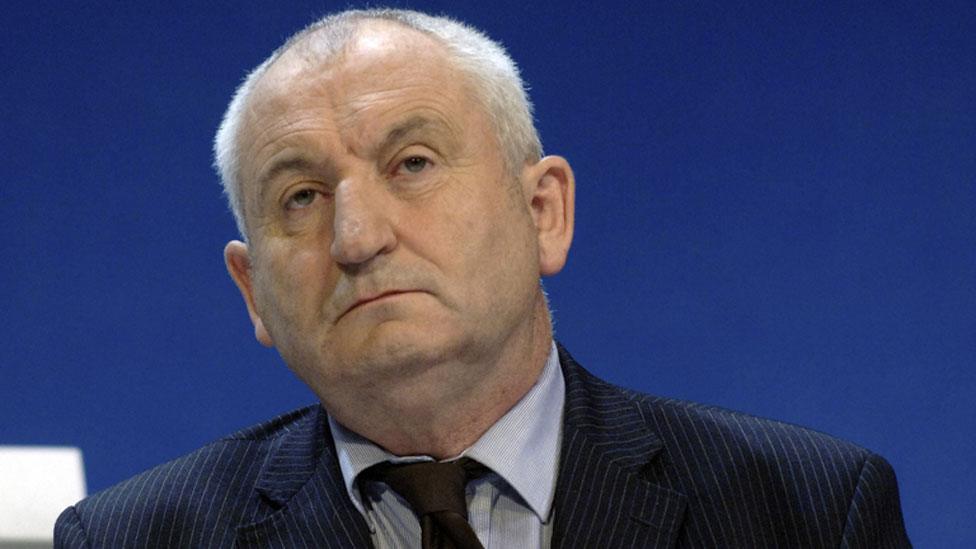
Lord Bird says successive governments have failed to tackle the roots of poverty
"Poverty is stitched into the system," says Lord Bird, the outspoken and larger-than-life Big Issue founder and campaigner on homelessness.
But he has plans to unpick it - and says he has been in talks with Theresa May about a new approach to tackling poverty if she is re-elected as prime minister.
"I'm expectant. I have great expectations," he says of his discussions with Mrs May about a new focus on preventing poverty before it takes root.
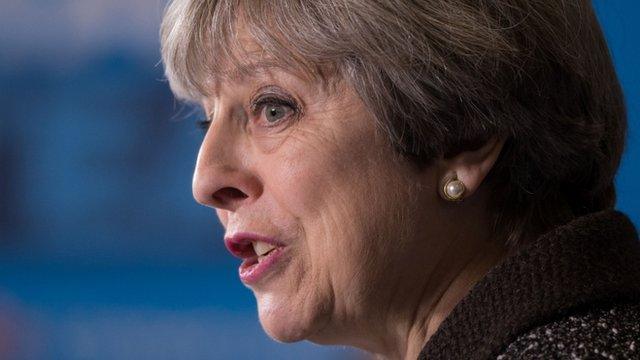
Lord Bird says Theresa May is talking to him about his focus on poverty prevention
They might seem like an unlikely pairing - Mrs May, the clergyman's daughter and John Bird, who learned to read in prison, but he says she has engaged with his ideas on prevention.
The cross-bench peer is proposing a "prevention department" or a "prevention unit", working across health, education, social services, police and prisons.
He says successive prime ministers have been "chummy" with him about ideas to tackle poverty but Mrs May seemed particularly interested in this shift towards a systematic strategy of prevention.
Lord Bird says he wants a fence at the top of the cliff, rather than ambulances picking up pieces at the bottom, external.
The billions spent on the rats' nest of consequences of poverty - in educational underachievement, bad health, poor employment, drink and drug abuse and the criminal justice system - would be better targeted at prevention.
And if Mrs May returns to Downing Street, he will be knocking on her door "to put her money where her mouth is".
He says he told her a couple of "home truths" - including that he was tired of being wheeled out by ministers who wanted to be associated with what the Big Issue has achieved for the homeless, while the big underlying problems remained unresolved.
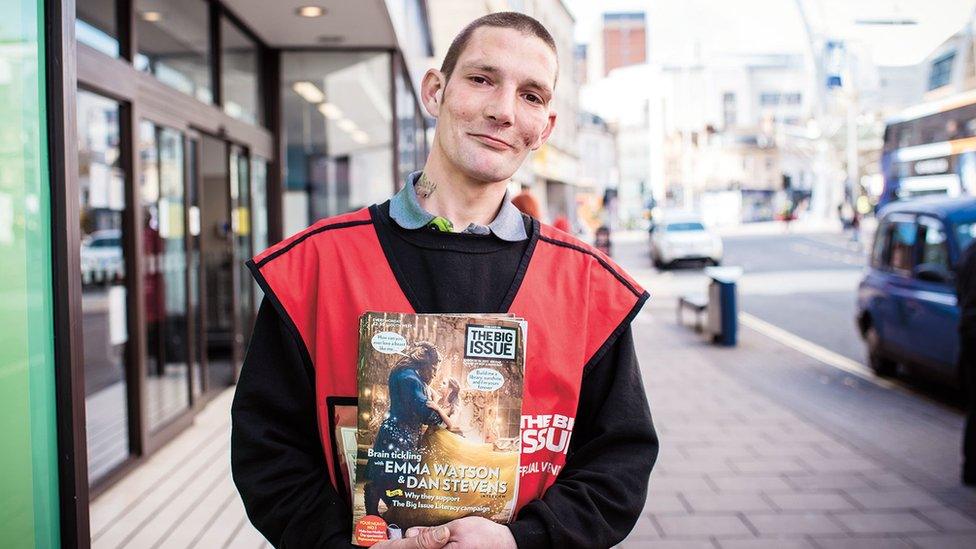
The Big Issue, founded by Lord Bird, has helped homeless people to earn a living
He is scathing about decades of ministerial attempts to address poverty.
"Most of them are a bit like the alcoholic that won't admit that they're a drunk.
"They don't want to admit that they're overseeing a system which at the end of their time in office will still be a failure."
He accuses governments of coming up with gimmicky pilot projects that get a few headlines but never really scratch the surface.
"They show it to you and sign a piece of paper saying they want to end poverty. But they go on spending the money in the same old way."
More than money
He also argues strongly that poverty is not just about material deprivation - and that anti-poverty efforts need to be about raising aspirations and opening up opportunities.
"I know that the poor are materially better off than when I was a boy - but emotionally, psychologically and mentally, they're worse off."
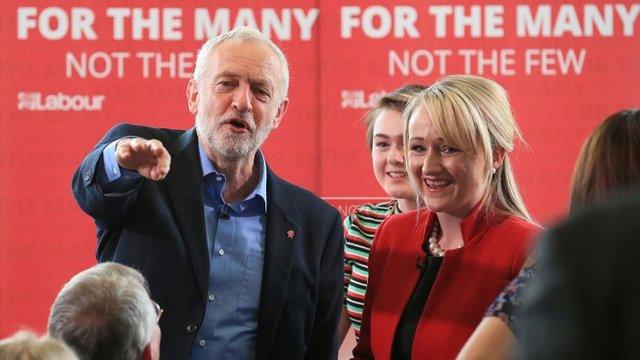
Labour leader Jeremy Corbyn wants investment in education and a higher living wage
He says those at the bottom of the heap have been hurt by an economy dominated by a "horrible mix of consumerism and the financial industry".
But he says the first step has to be addressing basic need.
"If you can't feed, you can't think.
"You've got this underlying situation where many, many families in this country are just about holding on.
"What we have to realise is that the lack of material security undermines everything else.
"So when people chastise the poor for not getting off their rears, it's often because with that material lack of independence all the other lights go out, the whole tree goes out."
"My mum and dad had enormous poverty - they were never going to raise their eyes above material poverty, because they'd been destroyed."
'Paucity of education'
But he is angry at what he sees as a lack of ambition in poverty initiatives.
"They don't look on the poor as the same species as themselves.
"I also want to address the paucity of education, the social engagement. And that's when you fall out with the great and the good."
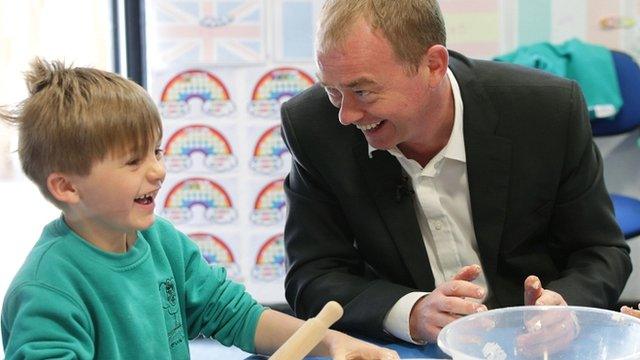
Tim Farron says the Liberal Democrats would end spending cuts in schools
He says there has been a misplaced fear of being seen as "elitist" or "paternalistic" - and that tackling poverty should be about opening up the worlds of art, history, politics and economics.
Schools should be teaching everyone about how financial markets operate, he says.
"Most capitalists don't even know how capitalism works these days," he says.
He accuses the social services system of being "vapid and ineffective".
"They're not stopping poverty. All they're doing is keeping the poor poor. Why is social security not called social opportunity?"
Working poverty
Whichever party wins the general election will face pressing questions about poverty, whether it's homelessness, food bank users or the out-of-sight struggles of those working but still not making ends meet.
Official figures this year showed that two-thirds of children living in poverty were now in working families, the highest levels on record.
The Labour Party says it will "stand up for the many", with the promise of a £10 per hour living wage and scrapping benefits changes that "risk pushing even more children and families into poverty". It is also committed to extra spending on education and student support
The Liberal Democrats have promised extra investment schools, including protecting the pupil premium for children from disadvantaged backgrounds. They are also "committed to ending rough sleeping in Britain" and funding emergency accommodation
The Conservatives in office have emphasised the importance of work as a route out of poverty - and say introducing universal credit and the National Living Wage have helped tackle poverty
Lord Bird, who made the journey from sleeping rough and washing up in the kitchens at the House of Lords to sitting as a peer on the red benches, will keep rattling the windows of whoever gets elected.
- Published13 October 2015
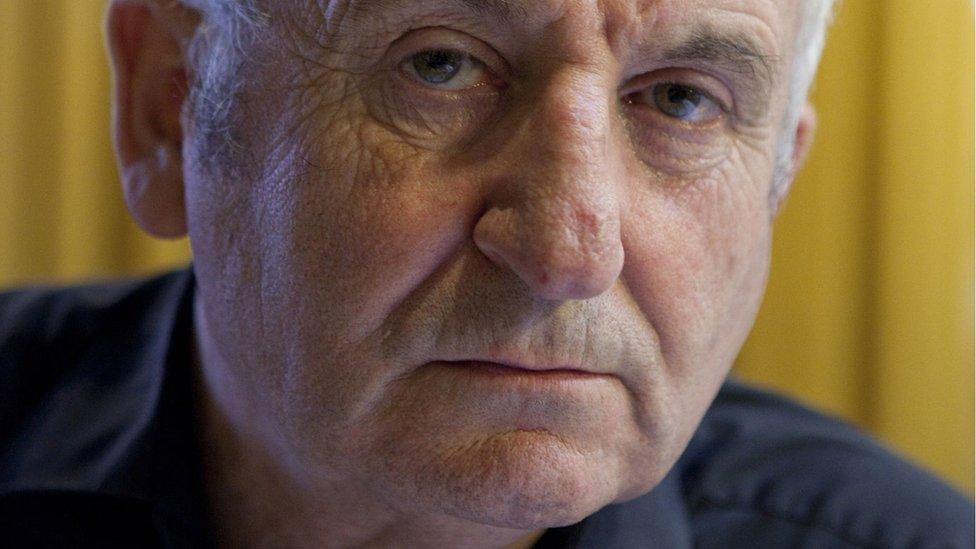
- Published28 November 2016
